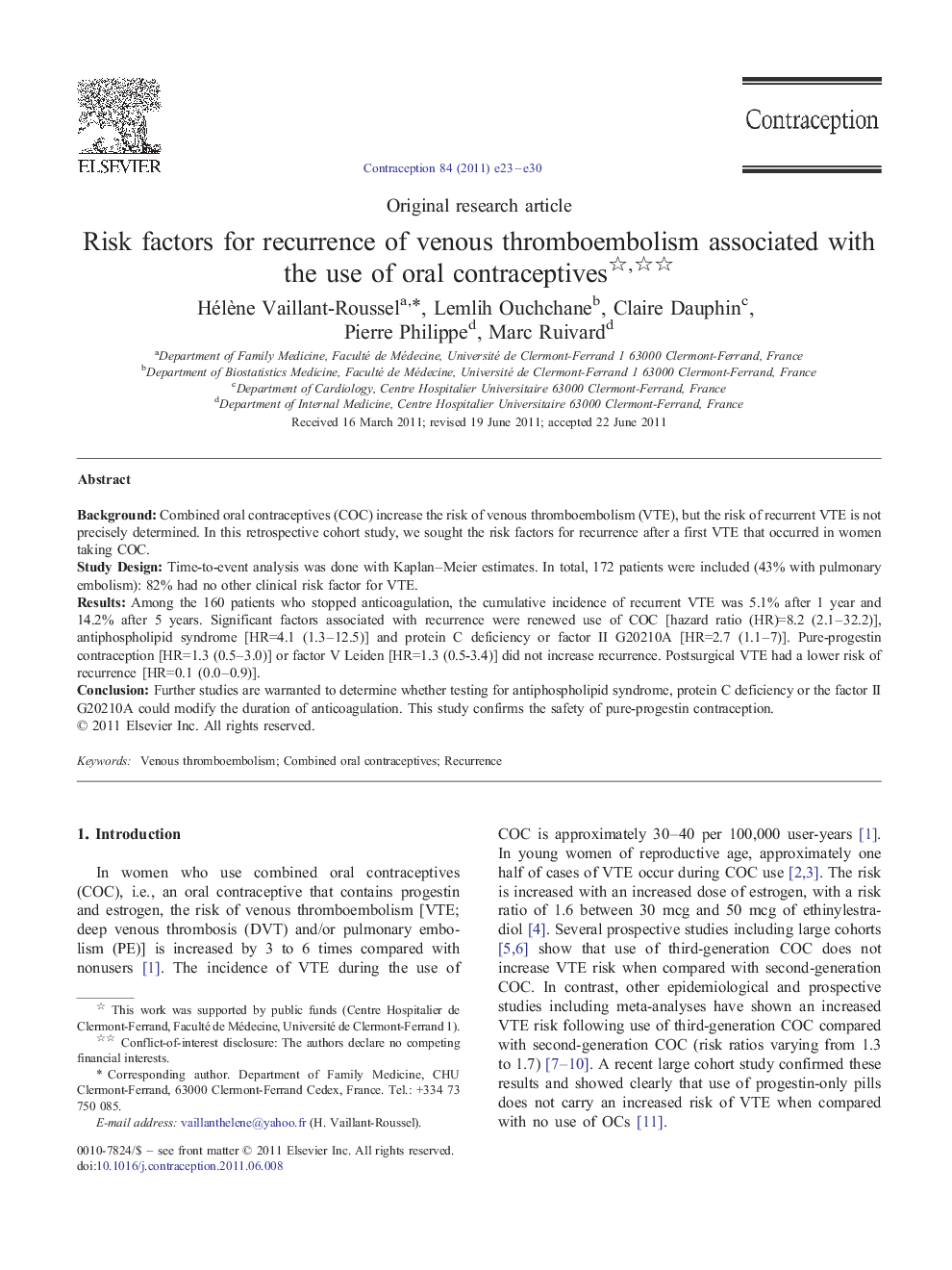| Article ID | Journal | Published Year | Pages | File Type |
|---|---|---|---|---|
| 3914407 | Contraception | 2011 | 8 Pages |
BackgroundCombined oral contraceptives (COC) increase the risk of venous thromboembolism (VTE), but the risk of recurrent VTE is not precisely determined. In this retrospective cohort study, we sought the risk factors for recurrence after a first VTE that occurred in women taking COC.Study DesignTime-to-event analysis was done with Kaplan–Meier estimates. In total, 172 patients were included (43% with pulmonary embolism): 82% had no other clinical risk factor for VTE.ResultsAmong the 160 patients who stopped anticoagulation, the cumulative incidence of recurrent VTE was 5.1% after 1 year and 14.2% after 5 years. Significant factors associated with recurrence were renewed use of COC [hazard ratio (HR)=8.2 (2.1–32.2)], antiphospholipid syndrome [HR=4.1 (1.3–12.5)] and protein C deficiency or factor II G20210A [HR=2.7 (1.1–7)]. Pure-progestin contraception [HR=1.3 (0.5–3.0)] or factor V Leiden [HR=1.3 (0.5-3.4)] did not increase recurrence. Postsurgical VTE had a lower risk of recurrence [HR=0.1 (0.0–0.9)].ConclusionFurther studies are warranted to determine whether testing for antiphospholipid syndrome, protein C deficiency or the factor II G20210A could modify the duration of anticoagulation. This study confirms the safety of pure-progestin contraception.
